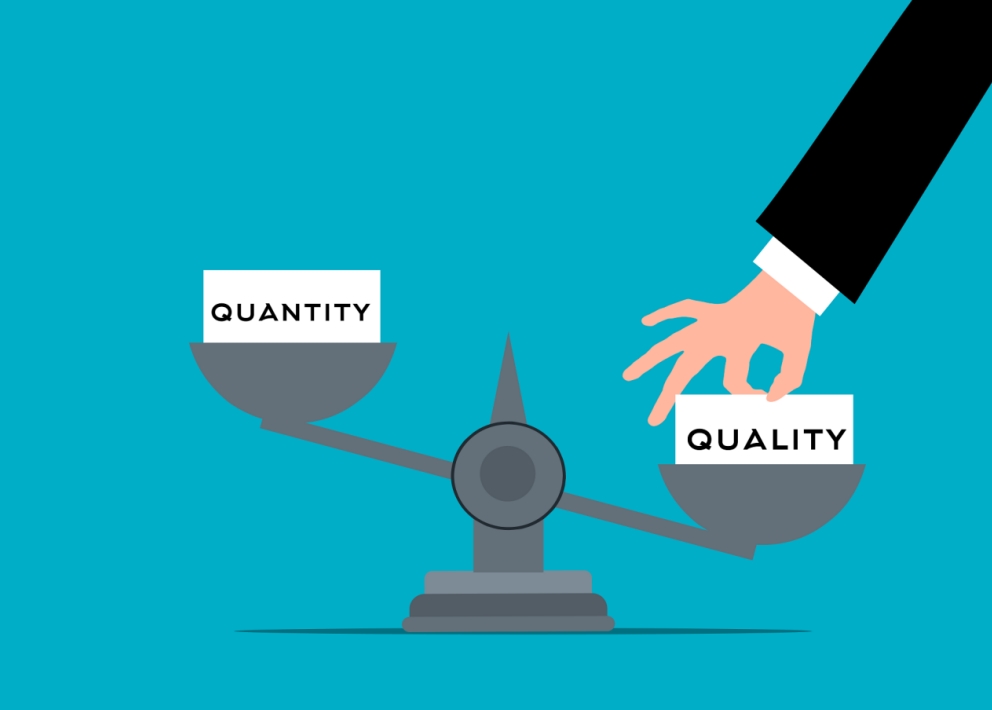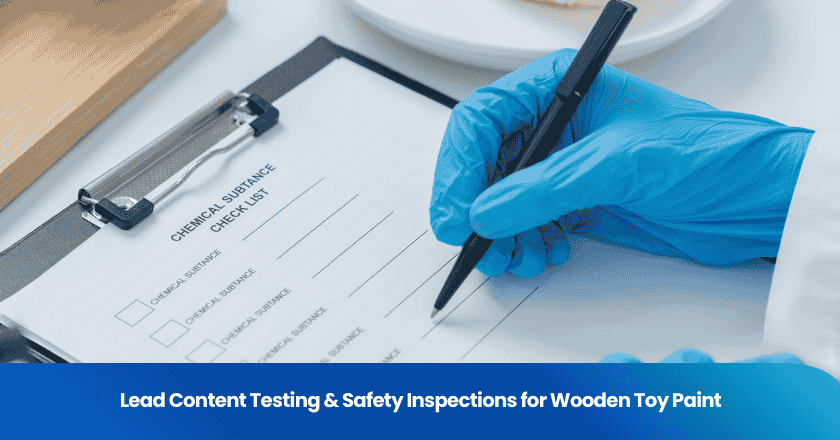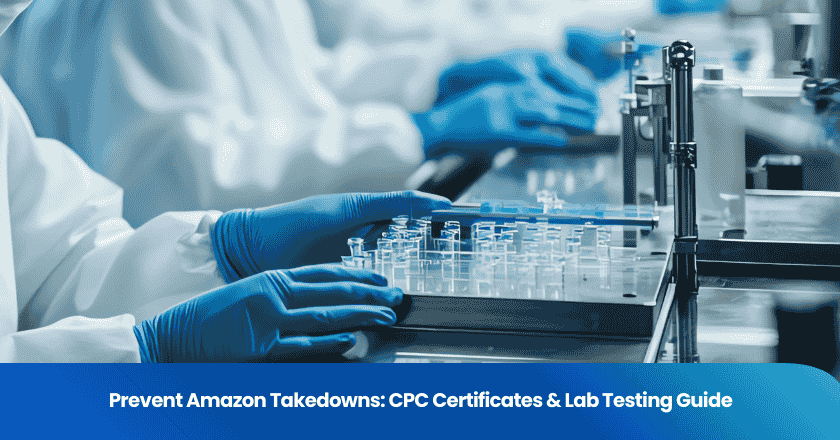
Introduction
With the increasingly complex and volatile global business environment, outsourcing quality assurance services has become a strategic choice for many enterprises to optimize resource allocation and enhance product competitiveness. This trend reflects the growing demand for efficient and professional quality assurance services in the market, and also emphasizes that enterprises must make wise decisions while pursuing cost-effectiveness to ensure that product quality and customer satisfaction are not compromised.
This article will explore five key factors that need to be carefully considered before outsourcing quality assurance, helping enterprises avoid risks and achieve dual improvements in quality and efficiency.
Clarify quality assurance requirements
A comprehensive review of the scope and requirements of the evaluation project
Before deciding to outsource quality assurance tasks, the primary and crucial step for enterprises is to precisely and comprehensively define the specific scope and core requirements of the project. This process involves not only an in-depth analysis of each key aspect of the project to determine which parts urgently require professional intervention in quality assurance, such as complex software development stages, delicate user experience testing, or rigorous security audit processes, but also requires enterprises to clarify the professional skills and knowledge systems that the required quality assurance team should possess. This may cover multiple dimensions such as the efficient implementation of automated testing, the rigorous execution of performance testing, and the flexible application of agile testing methods. Through such exhaustive demand analysis work, enterprises can more targetedly select outsourcing service providers, ensuring that the selected services not only meet the project requirements at the technical level but also highly align with the enterprise in terms of cooperation tacit understanding and service philosophy, thereby maximizing service matching.
Seamlessly align quality assurance objectives with the grand vision of the enterprise
Quality assurance activities are by no means isolated and unassisted operations, but should serve as an important engine driving the realization of the overall strategic blueprint of the enterprise. Therefore, it is particularly crucial to clarify how quality assurance work directly and effectively promotes the continuous improvement of enterprise product quality, how to solidify and enhance users' deep trust in the enterprise, and how to help the enterprise expand its market share in fierce market competition. To achieve this goal, the enterprise needs to jointly set a series of clear, quantifiable, and measurable key performance indicators (KPIs) with the outsourced quality assurance team. These indicators may include, but are not limited to: a significant reduction in defect rates, a comprehensive improvement in test coverage, and a steady increase in user satisfaction. Through such KPI setting, not only does it provide objective evaluation criteria for the effectiveness of outsourced services, but it also ensures that the enterprise and the quality assurance service provider maintain a high degree of consistency in pursuing goals, work together, and create brilliant achievements.
Evaluate the professional capabilities and experience of suppliers
Conduct in-depth research on potential quality assurance service providers to lay the foundation for cooperation
In the journey of outsourcing quality assurance services, selecting a service provider that is both professional and reliable is undoubtedly the key to success. To ensure that this choice is wise and precise, enterprises should adopt a diversified and comprehensive research strategy, fully utilizing the breadth of market research, the depth of industry reports, and valuable word-of-mouth recommendations from peers to build a comprehensive and detailed information collection network. On this basis, a set of strict and scientific screening criteria should be formulated, covering multiple dimensions such as whether the service provider has a brilliant historical performance, whether customer feedback is positive, whether the team size is moderate and the structure is reasonable, and whether the technical composition is advanced and comprehensive. By deeply studying the case studies provided by the service provider, enterprises can intuitively understand its performance and achievements in actual projects, while customer evaluations are like a mirror reflecting the true credibility and service level of the service provider. This valuable information will greatly assist enterprises in narrowing down their choices and identifying those candidates who truly possess strength.
Accurately assess industry expertise to ensure efficient and precise testing
The value of quality assurance services lies in their ability to provide specialized and customized testing solutions tailored to the characteristics and needs of specific industries. Therefore, a service provider's in-depth understanding and professional knowledge of the target industry become an important yardstick for measuring its service quality and efficiency. During the evaluation process, enterprises should ask the service provider a series of targeted and sufficiently in-depth questions, covering the latest requirements of industry standards, the widespread application of best practices, common challenges in the field, and innovative solutions to them. Through such a question-and-answer exchange, enterprises can intuitively evaluate whether the service provider has the ability to quickly adapt to industry characteristics, optimize testing processes, and its potential in reducing learning costs and improving testing efficiency. A service provider who has a thorough understanding of industry knowledge, can quickly integrate into and lead industry testing trends is undoubtedly the ideal choice for enterprises outsourcing quality assurance services. It will inject strong impetus and vitality into the quality control of enterprise products and the improvement of market competitiveness.
Cost-benefit analysis and budget considerations
Carefully calculate the total cost of outsourcing to ensure the reasonableness and sustainability of the budget
On the journey of exploring outsourced quality assurance services, enterprises are often initially attracted by the charm of directly reducing labor costs. However, wise decision-makers are well aware that outsourcing is not simply a cost transfer, but a comprehensive consideration involving multi-dimensional costs.
In addition to the intuitive savings in labor costs, enterprises also need to carefully evaluate those seemingly hidden cost factors that have far-reaching impacts, such as additional communication costs incurred due to poor communication, increased management costs for coordinating outsourced teams, and potential training expenses to ensure the outsourced teams quickly integrate into the project.
Before making an outsourcing decision, enterprises must conduct a comprehensive and in-depth financial analysis. This involves not only calculating the initial investment costs but also estimating various expenses during ongoing operations, including even potential additional costs arising from unforeseen factors.
Through such a comprehensive evaluation, enterprises can ensure that the budget formulated is both reasonable and sustainable, laying a solid financial foundation for the smooth implementation of outsourcing projects.
Understand the return on investment in quality and seek the golden balance point between cost and quality
Quality is the cornerstone of an enterprise's survival and development, and it also represents the core value of outsourced quality assurance services.
A high-quality product or service can not only significantly enhance customer satisfaction, stimulate positive word-of-mouth, but also effectively increase the repurchase rate and consolidate and enhance customer loyalty. These seemingly intangible benefits actually contain enormous commercial value. Therefore, while calculating outsourcing costs, enterprises should also deeply analyze the indirect benefits brought by quality improvement, such as the customer service cost savings due to reduced customer complaints, the subsequent cost savings due to decreased product maintenance frequency, and the enhanced market competitiveness due to improved brand image.
Through such an in-depth and meticulous analysis, enterprises can more clearly recognize the long-term value of investing in quality, thereby finding the optimal balance point that aligns with both corporate interests and market demands, between cost savings and quality assurance.
Such a decision not only reflects the company's unwavering pursuit of quality, but also highlights its remarkable business acumen and strategic foresight.
Communication and collaboration mechanism
Establish clear and smooth communication channels, laying the foundation for successful cooperation
In the vast realm of outsourced quality assurance, communication is not merely the transmission of information; it is also the establishment of trust and the deepening of cooperation.
To ensure the smooth progress of outsourced projects, it is imperative for enterprises and service providers to establish a clear, efficient, and barrier-free communication mechanism. Both parties are required to sit down, negotiate, and jointly determine the most suitable communication tools. Whether it's the professionalism of project management software or the convenience of instant messaging tools, the selection should be based on the actual needs of the project and the preferences of both parties.
At the same time, it is essential to clarify the frequency of meetings and the participants involved, ensuring timely communication and feedback of key information. Regarding the format of reports, consensus should also be reached, which not only meets the enterprise's need for a comprehensive understanding of project progress but also facilitates efficient and accurate submission of work results by service providers.
Through such meticulous planning, enterprises can ensure the smooth flow of communication channels, laying a solid foundation for the success of outsourcing cooperation.
Attach importance to cultural fit and working styles, and promote deep integration and efficient collaboration
Cultural differences often become invisible obstacles that affect the efficiency and effectiveness of outsourcing project execution. Therefore, when selecting service providers, enterprises should not only consider their professional skills and experience, but also deeply understand their cultural background and work habits. This includes the service providers' adherence to professional ethics, their preferences in problem-solving methods, and the teamwork spirit they exhibit in their work.
Through such a comprehensive investigation, enterprises can identify service providers that are highly compatible with them in terms of culture, laying a solid foundation for subsequent in-depth cooperation. To further enhance mutual understanding and trust, enterprises can also organize cultural exchange activities, providing opportunities for both teams to exchange ideas and share experiences face-to-face.
In addition, regular team-building activities are indispensable. They not only deepen the emotional connections among team members but also facilitate mutual learning and reference of work styles, achieving a deep integration of both cultures and work methods. This provides a strong guarantee for efficient collaboration and successful delivery of outsourcing projects.
Risk management and contract protection
Thoroughly identify potential risks and establish a comprehensive protective network
In the complex environment of outsourced quality assurance, risks are like undercurrents, and any slight negligence may cause immeasurable losses to the project. Enterprises must possess keen insight to identify and address those risks lurking deep within the project in advance.
Data security, as the primary concern in outsourcing cooperation, requires enterprises to sign strict confidentiality agreements with service providers to ensure that sensitive information is not leaked. At the same time, a comprehensive data backup mechanism should be established to prevent unexpected needs. Intellectual property protection is another major risk point. Enterprises should require service providers to respect and protect their intellectual property rights and avoid any form of infringement.
In addition, ensuring service continuity is crucial. Enterprises should thoroughly evaluate the disaster recovery plans of service providers to ensure their ability to quickly restore services in case of emergencies. Through such comprehensive risk identification and response, enterprises can build an impenetrable protective network, providing solid support for the smooth progress of outsourcing projects.
Formulate a rigorous contract to lay a solid foundation for cooperation
A contract serves as the legal basis for the rights and interests between an enterprise and a service provider.
To ensure the smooth progress of the outsourcing quality assurance project and maximize the protection of both parties' rights and interests, enterprises must develop a rigorous and comprehensive contract. This contract should include a detailed Service Level Agreement (SLA) that clarifies the specific commitments and responsibilities of both parties in terms of service quality, response time, and fault handling. At the same time, clear termination clauses should be established to specify under what circumstances both parties have the right to terminate the cooperation, as well as the follow-up matters after termination. A dispute resolution mechanism is also an indispensable part, which should clarify the resolution paths and procedures for both parties in case of disputes, avoiding unnecessary legal disputes.
In addition, the contract should be flexible enough to allow the service scale to be adjusted in a timely manner according to project needs, so as to adapt to market changes and the development needs of the project. Through such a rigorous and comprehensive contract, enterprises can not only effectively protect their own interests, but also inject stability and flexibility into the cooperation between both parties, jointly promoting the outsourcing quality assurance project towards success.
END
Clarifying quality assurance requirements, evaluating supplier capabilities, conducting cost-benefit analysis, establishing effective communication mechanisms, and implementing risk management and contract protection are the five key factors that enterprises must comprehensively consider before outsourcing quality assurance.
By continuously evaluating and adjusting outsourcing relationships, enterprises can maximize the value of outsourcing quality assurance, achieve a leap in product quality, and continuously enhance customer satisfaction.
Wise decision-making and meticulous preparation will serve as solid foundations on the path to successful outsourcing.
Grow your business with TradeAider Service
Click the button below to directly enter the TradeAider Service System. The simple steps from booking and payment to receiving reports are easy to operate.



